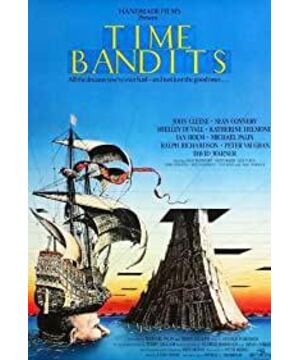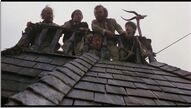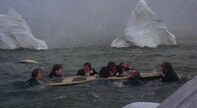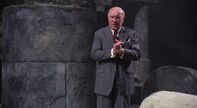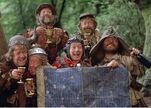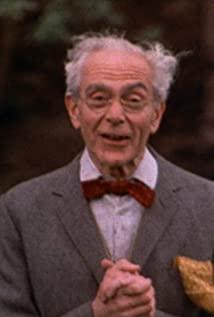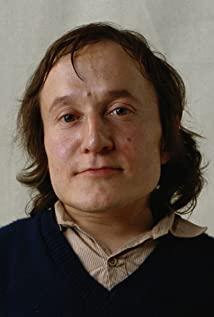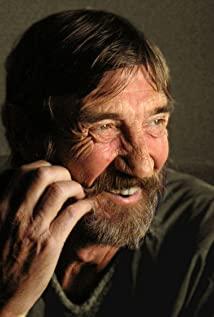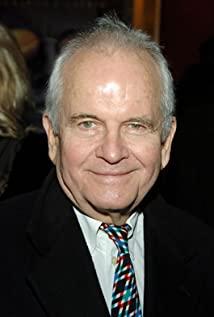It can be said that an important feature of Gilliam's films is to look at problems from the perspective of children. In Gilliam's view, adult thinking has been stereotyped, closed, and imagination dried up, but children's thinking is not closed yet, and creation is about returning to the world of children. And the imagination of the children's world is not random. Children have their own moral order and their own standards of good and evil, but this set of moral order and standards of good and evil are rarely valued by adults. Furthermore, art is to criticize the indifference and closure of the adult world by exploring the world of children's thoughts, and to use children's imagination to enhance our desperate reality. This is a kind of fighting horn. The ultimate goal of his all kinds of madness, psychedelic, fascination with the Middle Ages, exaggerated performance and Gothic horror is to declare war on this depressed world on behalf of God's will! Children lead the heroes in constant struggle, this is the soul of Gilliam. From the little girl in "Rising Tide Coast" back to 1981, there has been a little boy who broke through the frustration of the adult world and led these stupid adults into a fantasy and great parallel world for adventure. He is Kevin in "Time Thieves". This was Gilliam's first commercially successful film, and this film also established his film career. The beginning of the movie is a very dull family scene. Kevin formed a strong contrast with his parents: the parents captured by the TV show have no fun at all. They don’t know to actively explore the world and can only passively accept consumption. All kinds of cultural stimuli; but the child's mind is full of illusions about ancient Greece. Gilliam hates television. "TV" is an important media of consumer culture. It can only make people's active exploration ability degenerate. Traditional reading is an important way to expand people's active exploration ability. Whether it is "Time Bandit", "Ultimate Heaven General" or "Rising Tide Coast" a few years later, children will always be the vanguard of exploring the world. They surpass those in power whose thinking has long been closed, and lead a small number of adults who can explore but are powerless. People move forward. Kevin’s bedroom is carefully designed, and Gilliam plastered the entire wall of his "old business", that is, various images in the collage animation: this is another refuge for imagination, and he resists the next door. The "high-tech" of the parents' room is boring. From the beginning of this movie, a living space full of artistic spectacles diametrically opposed to the real world has become Gilliam’s habitual tactics: the theater of "Ultimate Heaven General", the residence of Pali in "The Fisher King", and "The Twelve Monkeys" "Korns’s flower shop, the Black Forest of "Brothers Grimm", until Diqin’s bedroom in "Rising Tide Coast"-Gilliam has built for decades a most abnormal person at the bottom of the power ladder. The dream territory understood and accepted, this dream territory is the hub that connects the real world and utopia. On the contrary, the "punishmental question and answer" in the TV program, although it may seem thrilling, is a planned entertainment program: Gilliam deliberately chooses the elderly to act as the guests in the program, which symbolizes the people participating in the program. Thinking aging. The real adventure is not knowing the process and the result. This is the preciousness of the children's world. The situation where the white horse broke through the wardrobe is an image extracted by Gilliam from ancient Greek and medieval knight legends: it is the most direct expression of Gilliam, and it symbolizes human creativity with a romantic attitude. Uncompromising and yielding to the spirit of utopia. Kevin's dream is the white horse knight who broke through the closet, and his parents' dream can only be to save money to replace more advanced kitchen equipment. The reason why these dwarves are added to Kevin's journey through the journey is because they have strengthened Kevin's combat effectiveness. A child alone may be too thin to undertake the task of exploring historical myths, and joining this group of dwarves will make the subject more powerful and richer in drama. Their first stop was the Napoleonic era. Napoleon did not appear as a legendary hero. He was a man who was deeply controlled by inferiority in his bones. Then they saw Robin Hood in the Middle Ages. Robin Hood was not a hero, but a robber with both sides. When I came to Titanic, it was not a picture of the upper class that was romanticized by today's people, but two idiots corrupted by the etiquette of the upper class-these tall historical images were deconstructed one by one in the movie. The film unfolds the narrative from Kevin's perspective. In this "child" perspective, all roles in the adult world are pathological. The only exception is Agamemnon. Only Agamemnon is commensurate with his position in mythology. So what is Kevin's attitude in the journey through history? During Napoleon and Robin Hood, he was only passively attracted, but when the dwarves took him away from Agamemnon, his rebellious attitude was clearly shown on Titanic. This is an improvement over "Inexplicable": from Dennis in "Mo" to Kevin in "Time", the negative character becomes the active character. The protagonist is no longer led by fate, he has it. Judgment of historical morality and the ability to react positively to judgments. The protagonist began to explore actively and learn to fight. It is worth mentioning that this movie's thinking on the concept of "history". "History" in this movie is not the history that actually happened, but the creation of Kevin's spirit: whether all this is a real crossing or just a dream of Kevin, the film is actually blurred. Therefore, as an infinite spiritual world that resists the limited real world, "history" includes both the real history and the "history" in myths and legends-otherwise it would be impossible to explain why Agamemnon became Kevin "Father of the Spirit". In the original script, Agamemnon finally came to hell, fought a decisive battle with Satan, and sacrificed himself in exchange for the salvation of Kevin and his team. However, due to Sean Connery's visa issue, he failed to come for the second half of the filming, so he had to change the script. It can be said that Kevin created the "father" image of Agamemnon, the ideal world, to replace the vulgar and boring father in the real world. The reason why Kevin's "traveling" includes various mythological worlds is to liberate the audience's thinking and broaden the dimension of history. Especially the section where the giant heads the ship, this is a period that neither real history nor mythical history can be included, but it is the inevitable result of the forward development of the logic created by imagination. From the perspective of the closed-minded adults of Kevin’s parents, history can only be a linear development and a real occurrence; but in Kevin’s world, history is the actualization of all kinds of heterogeneous thinking mixed with moral judgments, and it Allow the subject to react positively in it-this is the reason why our lay people who work hard every day need to "cross". Gilliam hated the closed-minded realists, so he arranged for Kevin's parents to be killed in the end. In fact, the ultimate promoter of all these adventures is God. In other words, all dangers and ways to escape danger are actually under the control of God (this is very similar to my country's "Journey to the West"). The image of this god is remarkable: without any fancy clothes, without any exaggerated expressions, he is a middle-aged and elderly man, wearing a rigid suit, expressionless, just like a conservative middle school principal. So far, the film brings Kevin's spiritual exploration into a profound philosophical realm: why there is evil in the world. With an indifferent expression, God first left without answering, and then turned back and said that this was just something I did casually. But in the end he made a will to Kevin: "You have to stay here and fight." There is no solution to the existence of "evil", but "struggle" will last forever-this is where Gilliam's greatness lies. In fact, the ultimate promoter of all these adventures is God. In other words, all dangers and ways to escape danger are actually under the control of God (this is very similar to my country's "Journey to the West"). The image of this god is remarkable: without any fancy clothes, without any exaggerated expressions, he is a middle-aged man, wearing a rigid suit, expressionless, just like a conservative middle school principal. So far, the film brings Kevin's spiritual exploration into a profound philosophical realm: why there is evil in the world. With an indifferent expression, God first left without answering, and then turned back and said that this was just something I did casually. But in the end he made a will to Kevin: "You have to stay here and fight." There is no solution to the existence of "evil", but "struggle" will last forever-this is where Gilliam's greatness lies.
View more about Time Bandits reviews


